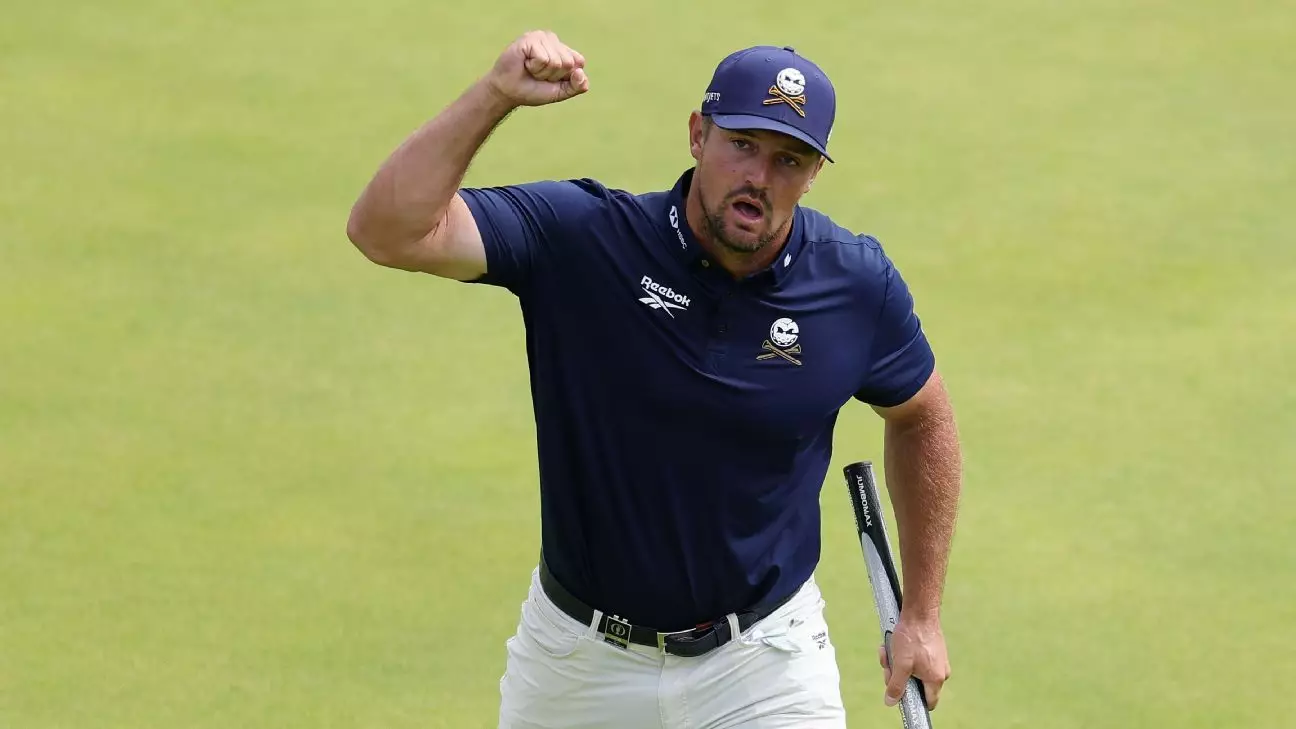Bryson DeChambeau’s initial performance at the Open Championship was a stark reminder of the unpredictability of sports and the importance of mental grit. A disappointing 78, placing him at the very bottom of the leaderboard and raising doubts among fans and critics alike, could have easily derailed his confidence. Instead, DeChambeau responded with unwavering determination, transforming his game into a spectacle of perseverance. His subsequent three rounds under par, culminating in an impressive 64 on Sunday, illustrate a psychological turnaround that defies the narrative of a fragile athlete. It underscores a vital lesson: setbacks are inevitable but not defining—what matters is the ability to rally and adapt.
His commentary reveals a preference for fair playing conditions, hinting at a desire for consistency over chaos. Yet, beyond surface-level comments, what’s truly noteworthy is how he views the challenge—viewing rain and wind as hurdles that test resilience rather than insurmountable obstacles. This attitude reflects the broader societal need for tenacity amid adversities, especially in a time when division and uncertainty pervade many facets of life. DeChambeau’s story becomes a microcosm of a cultural moment: setbacks are inherent, but the strength of character determines eventual victory.
Reaffirming American Identity Through the Ryder Cup
DeChambeau’s strong finish isn’t just about individual pride; it’s a strategic move that enhances national unity. Securing his spot on the US Ryder Cup team bolsters perception of American resilience—a team that can rebound from adversity and perform under pressure. From a center-wing liberal perspective, there’s an appreciation for the values of hard work, persistence, and team spirit that DeChambeau exemplifies. Yet, there’s an undercurrent of concern: the selection process for the team appears more political than meritocratic, risking undermining the very values it seeks to uphold.
The Ryder Cup, in many ways, transcends the sport. It symbolizes American tenacity and the global competitiveness of the nation’s ideals. By rallying from a poor start to place himself among top contenders, DeChambeau embodies perseverance that resonates beyond the links—mirroring societal challenges where persistence and resilience are crucial for progress. The tournament is also a platform for fostering unity within the nation, even if it’s a fragile unity prone to fractures when decisions are viewed as exclusive or biased.
The Political Undercurrents of Team Selection
The nuances surrounding team selection reveal deeper societal tensions about fairness and representation. Keegan Bradley’s role as a potential captain-athlete embodies a balancing act—hopeful that he can serve both as leader and player, yet aware of the complexities involved in such dual responsibilities. His admission of considering player performance before making a final call hints at transparency, but also raises questions about the potential for favoritism or internal biases.
DeChambeau’s assertion that team members should excel individually without being shoved into rigid roles aligns with the liberal emphasis on individual agency within collective endeavors. However, it also highlights the challenge—how to foster an environment where individual abilities are maximized without sacrificing the integrity of the team. The brief note about Bradley distributing inspirational messages to potential team members reveals a desire to motivate and unify from within, emphasizing the importance of camaraderie in achieving collective success.
As a society, we grapple with similar questions—how to harness individual strengths for a common good, especially when institutional decisions are clouded by politics or perceived favoritism. The Ryder Cup becomes a mirror reflecting broader societal struggles: the importance of fairness, merit, and the need for inclusive leadership that recognizes both individual talent and collective ambition. DeChambeau’s resilience, combined with Bradley’s leadership, suggests a potential path forward—one anchored in perseverance, integrity, and a shared sense of purpose.


Leave a Reply